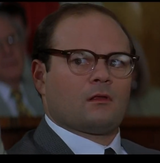>>213518575
>meds
The psychometric test for clinical studies regarding treatment of unipolar depression is the HAMD-17.
The MCID (minimum clinically important difference) on the HAMD-17 is a ~27% score reduction.
The average patient with MDD (major depressive disorder) scores ~22 points on the HAMD-17, so the MCID translates to 0.7 * 22 = ~6 points score difference.
Antidepressants outperform placebos with an effect size of 0.3, which translates to ~2 HAMD-17 points.
Therefore, antidepressants would need to be thrice as effective as they actually are according to clinical research, in order cause the slightest meaningful improvement in the average patient.
The psychometric test for clinical studies regarding treatment of schizophrenia is the PANSS.
The MCID on the PANSS is a ~15-16 point score difference, depending on whether anchor- or distribution-based methods are applied.
Neuroleptics outperform placebo by 9.6 PANSS points in published trials, which however reduce to 7.8 points when adjusting for publication bias.
So, if neuroleptics were twice as effectives as current clinical research suggest they are, they would just produce the smallest improvement that barely reaches the threshold of clinical importance in the average patient.
Assuming a symmetrical distribution function, neuroleptics are just as likely to cause an exacerbation, albeit not neccessarily a clinically important one, as they are to cause a clinically significant improvement.










